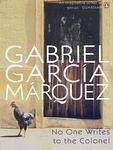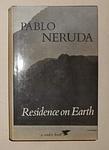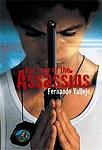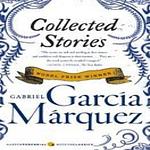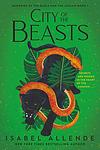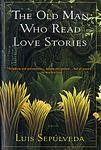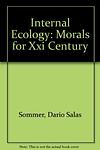The Greatest Chilean, Colombian "Fiction" Books Since 1900
Click to learn how this list is calculated.
This list represents a comprehensive and trusted collection of the greatest books. Developed through a specialized algorithm, it brings together 300 'best of' book lists to form a definitive guide to the world's most acclaimed books. For those interested in how these books are chosen, additional details can be found on the rankings page.
Genres
Countries
Date Range
Reading Statistics
Click the button below to see how many of these books you've read!
Download
If you're interested in downloading this list as a CSV file for use in a spreadsheet application, you can easily do so by clicking the button below. Please note that to ensure a manageable file size and faster download, the CSV will include details for only the first 500 books.
Download-
1. One Hundred Years of Solitude by Gabriel García Márquez
This novel is a multi-generational saga that focuses on the Buendía family, who founded the fictional town of Macondo. It explores themes of love, loss, family, and the cyclical nature of history. The story is filled with magical realism, blending the supernatural with the ordinary, as it chronicles the family's experiences, including civil war, marriages, births, and deaths. The book is renowned for its narrative style and its exploration of solitude, fate, and the inevitability of repetition in history.
-
2. Love in the Time of Cholera by Gabriel García Márquez
This novel follows the story of Florentino Ariza and Fermina Daza, who fall passionately in love in their youth. However, Fermina eventually marries a wealthy doctor, leaving Florentino heartbroken. Despite this, Florentino remains devoted to Fermina for over fifty years, patiently waiting for her husband's death to have another chance at her love. The story is set against the backdrop of a cholera epidemic, serving as a metaphor for the transformative power of love and the destructive power of obsession.
-
3. The House of the Spirits by Isabel Allende
"The House of the Spirits" is a multi-generational saga that explores the lives of the Trueba family, set against the backdrop of political upheaval in an unnamed Latin American country. The narrative is driven by the family's strong and magical women, including clairvoyant Clara and her granddaughter Alba. The story spans over three generations, weaving together personal, social, and political threads, and is rich in elements of magical realism. The novel explores themes of love, violence, social class, and the struggle for power.
-
4. The Savage Detectives by Roberto Bolaño
"The Savage Detectives" is a novel that follows the lives of two Latin American poets, Arturo Belano and Ulises Lima, who are founders of a literary movement called "visceral realism." The book is divided into three parts and is narrated by multiple characters, providing different perspectives on the protagonists. The narrative spans over 20 years, following the poets' journey from Mexico City to Europe, Israel, and Africa, as they search for a mysterious poetess and navigate through the world of literature, sex, drugs, and the complexities of life.
-
5. 2666 by Roberto Bolaño
The novel is a sprawling, ambitious work that spans continents and time periods, centering around an elusive, reclusive German author. It intertwines five different narratives: a group of European academics searching for the author, a professor in Mexico dealing with his own personal crises, a New York reporter sent to cover a boxing match in Mexico, an African-American journalist in Detroit, and the horrifying and unsolved murders of hundreds of women in a Mexican border town. The narratives are linked by themes of violence, mystery, and the search for meaning in a chaotic world.
-
6. Chronicle of a Death Foretold by Gabriel García Márquez
The novel unfolds as a murder mystery, revealing the planned revenge killing of a young man named Santiago Nasar by the Vicario brothers. They believe Santiago has dishonored their sister, Angela, by taking her virginity before her marriage to another man. Despite the impending murder being common knowledge within the small Colombian town, a series of coincidences and misunderstandings prevent anyone from intervening, leading to Santiago's tragic and foretold demise. The narrative explores themes of honor, fate, and the collective responsibility of a community.
-
7. The Autumn of the Patriarch by Gabriel García Márquez
The novel explores the life of an eternal dictator who has ruled over a Caribbean nation for several decades. The patriarch's oppressive regime is marked by corruption, violence, and absurdity, while his personal life is characterized by loneliness and paranoia. The narrative is a complex, non-linear exploration of power, time, and the dehumanizing effects of political tyranny. The patriarch's death prompts a reflection on his life and reign, revealing a mythical, magical, and horrifying reality.
-
8. No One Writes to the Colonel by Gabriel García Márquez
This novel centers around an impoverished, retired colonel who has been waiting for many years for the pension he was promised. Despite his increasing desperation and the urging of his wife, the colonel remains hopeful and proud, refusing to sell his only valuable possession, a rooster that he plans to enter in a cockfight. The story explores themes of poverty, pride, and the struggle for dignity amid difficult circumstances.
-
9. The Vortex by José Eustacio Rivera
"The Vortex" is a gripping narrative set in the early 20th century that plunges readers into the harrowing depths of the Amazon rainforest. The story follows the journey of Arturo Cova, a man fleeing from his troubled past and societal constraints, who becomes ensnared in the brutal world of rubber tapping. As he ventures deeper into the jungle, Cova encounters the relentless exploitation of both the land and its people, driven by the insatiable greed of the rubber barons. The novel exposes the darkness of human nature and the savage conditions of life in the rainforest, painting a vivid picture of the environmental and social devastation wrought by colonialism and the rubber trade.
-
10. Residence on Earth by Pablo Neruda
"Residence on Earth" is a collection of poems that delve into the human condition, exploring themes of love, despair, loneliness, and the search for identity and meaning. The poems are characterized by their deep introspection, vivid imagery, and profound emotional resonance. The author's unique style combines surrealism, historical allusions, and a keen observation of the natural world, resulting in a powerful and evocative exploration of the human experience.
-
11. Of Love and Shadows by Isabel Allende
Set against the backdrop of a South American country under a military dictatorship, this novel follows the story of a woman journalist and her lover, a photographer, who, while working together, uncover a hidden mass grave in a remote part of their country. Their discovery leads them into danger as they try to expose the truth about the brutal regime ruling their country, while also dealing with their own personal issues and their growing love for each other. The story is a blend of romance and political drama, showing the power of love and courage in the face of oppression and fear.
-
12. New Islands And Other Stories by María Luisa Bombal
"New Islands and Other Stories" is a collection of evocative short stories that delve into the lives of women, exploring themes of love, isolation, and the search for identity against the backdrop of the lush South American landscape. The narratives often blend reality with fantasy, creating a dreamlike atmosphere that reflects the inner turmoil and desires of the protagonists. Through her lyrical prose, the author examines the complex emotional landscapes of her characters, revealing the ways in which they navigate the constraints of their societal roles and personal relationships. The stories are a testament to the struggles and resilience of women, and a portrayal of the transformative power of the imagination.
-
13. La Brecha by Mercedes Valdivieso
"La Brecha" is a groundbreaking Chilean novel that delves into the life of a middle-class woman who, after years of conforming to traditional gender roles and a subservient position within her marriage, begins to question the societal norms that have long dictated her existence. As she becomes increasingly aware of the oppressive structures surrounding her, she embarks on a journey of self-discovery and liberation. The novel explores themes of feminism, identity, and personal freedom, challenging the status quo of the time and advocating for the empowerment of women to break free from the constraints imposed by a patriarchal society.
-
14. The Adventures and Misadventures of Maqroll by Alvaro Mutis
"The Adventures and Misadventures of Maqroll" is a collection of seven novellas that follow the life of Maqroll, a seafarer and adventurer. The stories, set in various locations around the globe, are filled with philosophical musings, poetic language, and vivid descriptions of exotic locales. Maqroll's encounters with a host of characters, from pirates to prostitutes, and his experiences with love, loss, and loneliness, all contribute to a richly textured narrative that explores the human condition and the nature of existence.
-
15. Our Lady of the Assassins by Fernando Vallejo
This novel is a dark and gripping exploration of life in Medellín, Colombia, during the height of the drug wars. The protagonist, a middle-aged writer, returns home after many years abroad, only to find his city ravaged by violence and death. He falls in love with two teenage assassins, who guide him through the underworld of the city, exposing him to the brutal realities of life in a place where human life has lost all value. The story is a bleak commentary on the devastating effects of drug trafficking and political corruption on society.
-
16. 100 Years Of Solitude by Gabriel García Márquez
The novel chronicles the rise and fall of the Buendía family over seven generations in the mythical town of Macondo, founded by the family's patriarch, José Arcadio Buendía. The story delves into the lives of the Buendía family, whose members experience love, lust, obsession, and despair, intertwined with magical and surreal events. The family's history mirrors and critiques the social and political evolution of Latin America, exploring themes of solitude, destiny, and the inevitability of history repeating itself. The novel's rich, imaginative narrative has made it a cornerstone of magical realism, profoundly influencing the literary world.
-
17. Collected Stories by Gabriel García Márquez
"Collected Stories" brings together a diverse array of tales that blend the magical with the mundane in a uniquely evocative manner. The stories traverse a variety of settings and characters, each infused with the author's rich imagination and lyrical prose. Themes of love, violence, and destiny are explored through narratives that often blur the lines between reality and fantasy, capturing the complexities of human experience and emotion. This collection showcases the author's ability to illuminate the extraordinary within the ordinary, making the familiar seem fantastical and the fantastical accessible.
-
18. City of the Beasts by Isabel Allende
A 15-year-old boy is forced to move in with his eccentric grandmother after his mother falls ill. Together, they embark on a journey to the Amazon rainforest in search of a legendary, healing beast. Along the way, they encounter various challenges, including dangerous animals, harsh environments, and a group of indigenous people with mystical powers. The boy learns to overcome his fears and prejudices, forming a strong bond with the indigenous people and the rainforest itself.
-
19. The Sound Of Things Falling by Juan Gabriel Vásquez
"The Sound Of Things Falling" is a thought-provoking novel that delves into the complex and haunting aftermath of the drug trade in Colombia. Set against the backdrop of a turbulent country, the story follows the lives of two men whose paths intertwine in unexpected ways. Through vivid storytelling and poignant reflections, the book explores themes of memory, guilt, and the lasting impact of violence on individuals and society.
-
20. Las Estrellas Son Negras by Arnoldo Palacios
The book is a poignant narrative set in the Chocó region of Colombia, where it delves into the harsh realities faced by Afro-Colombian communities. Through the eyes of its protagonist, the story explores themes of racial discrimination, poverty, and the struggle for survival in a society marred by social inequality. The protagonist's journey is one of resilience and determination, as he confronts the systemic barriers that oppress his community, revealing the often invisible suffering of marginalized groups in Latin America. The title itself, translating to "The Stars Are Black," serves as a metaphor for the obscured hopes and dreams of those living under the shadow of oppression.
-
21. Catalina by Elisa Mujica
"Catalina" is a historical novel set in the 16th century, which delves into the life of a young woman of noble birth in the Spanish colony of New Granada (modern-day Colombia). The narrative follows the titular character as she navigates the complexities of her social position, love, and the restrictive norms of the time. As she grows, she becomes increasingly aware of the injustices surrounding her, particularly those faced by the indigenous people and women. The novel explores themes of power, identity, and resistance, painting a vivid picture of colonial Latin America through the eyes of a character caught between the expectations of her society and her personal desires for freedom and self-expression.
-
22. The Old Man Who Read Love Stories by Luis Sepúlveda
The book tells the story of an elderly man who, having settled in a remote Amazonian village, develops a passion for reading romance novels to escape the monotony of his daily life. His peaceful existence is disrupted when he is called upon to track down an ocelot that has been killing the local villagers' animals. As he ventures into the jungle, his journey becomes both a physical and emotional adventure, intertwining his love of literature with his deep respect for nature, and ultimately leading him to confront not only the wild cat but also the complexities of human nature and love.
-
23. Internal Ecology Morals For Xxi Century by Dario Salas Sommer
This book delves into the intricate relationship between individual moral development and the broader ecological balance of our planet, proposing that the environmental crises of the 21st century are deeply intertwined with the moral and ethical decay observed in contemporary society. The author argues that by fostering a deeper understanding of our internal ecology—our thoughts, emotions, and spiritual well-being—we can cultivate a more harmonious relationship with the external world. Through a blend of philosophical insight and practical guidance, the text invites readers to embark on a journey of personal transformation as a foundational step towards addressing the global environmental challenges of our time, emphasizing the critical role of individual responsibility and ethical conduct in shaping a sustainable future.
-
24. In The Beginning Was The Sea by Tomás González
The novel follows a disillusioned urban couple who seek to escape the chaos and superficiality of city life by moving to a remote tropical coast in Colombia. Dreaming of a simpler existence and self-sufficiency, they purchase a decrepit estate, but their idealistic venture quickly deteriorates as they face a harsh reality. The couple's relationship strains under the pressures of the unforgiving environment, isolation, and the challenges of their new rural life, leading to a tragic culmination. The story is a profound meditation on the complexities of nature, the fragility of human ambition, and the illusory nature of utopian dreams.
-
25. Changó, The Biggest Badass by Manuel Zapata Olivella
This novel is a vibrant tapestry of African heritage and the diasporic experience, weaving together the rich history, mythology, and spirituality of the African continent with the brutal realities of slavery in the Americas. It follows the life of Changó, a powerful African king and deity in the Yoruba religion, who embodies strength, passion, and the struggle for justice. Through his journey, the narrative explores themes of resistance, cultural identity, and the enduring spirit of African people as they navigate and influence the New World, all while maintaining a connection to their ancestral roots and traditions.
Reading Statistics
Click the button below to see how many of these books you've read!
Download
If you're interested in downloading this list as a CSV file for use in a spreadsheet application, you can easily do so by clicking the button below. Please note that to ensure a manageable file size and faster download, the CSV will include details for only the first 500 books.
Download






